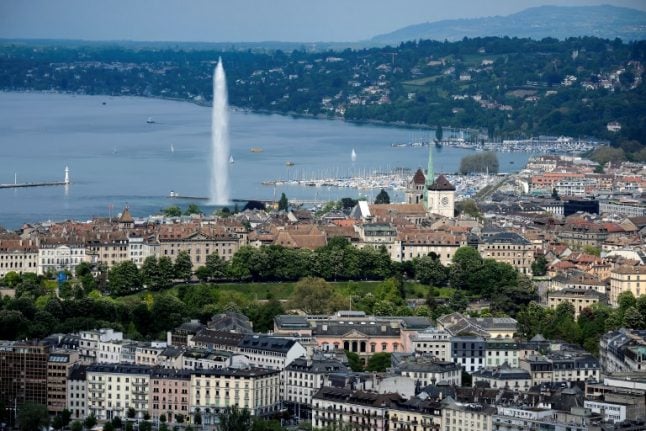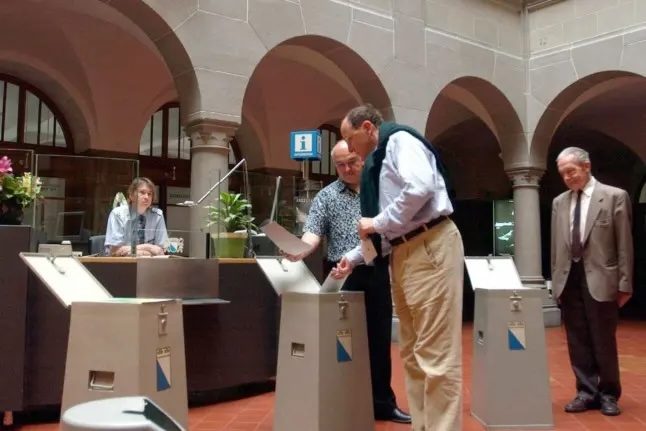Construction workers went on strike in Geneva today. A press release from the trade union UNIA suggested 2,500 workers took to the streets, although swissinfo.ch reported that the number was 1,800.
They were demonstrating against an alleged increase in temporary work contracts, the precarious job situation of older employees and perceived wage dumping because of sub-contracting.
A key issue is the pension age. The current national working contract for builders, which sets the retirement age at 60, expires at the end of 2018.
However, in May, the Swiss Builders’ Association announced that workers would have to either stay in employment until the age of 62 or accept a 30% drop in salary.
Unions are calling for employers to contribute more to pensions so that workers can continue to retire at 60.
Today’s strike followed a similar action in Ticino yesterday. In June, over 18,000 construction workers demonstrated in Zurich to protest against the new pension age proposal.
Strikes are relatively rare in Switzerland, which has no history of widespread industrial action. In 2017, the Hans Böckler Stiftung published research showing that Switzerland lost only two working days per 1,000 workers to strikes between 2005 and 2015.
Of 15 countries surveyed, it was the joint lowest alongside Austria, although they are not unheard of in Switzerland. Swiss News Agency staff went on strike in January this year, as did United Nations employees in Geneva in February. A planned strike of air traffic controllers at Geneva airport in July was cancelled.
READ ALSO: UN employees strike over pay cuts in ‘pricy Geneva’
The unions Unia, Synia and SIT, who organised the strikes, have described the new national working contract proposal as an “attack on health and dignity”. They have warned that strikes could continue and announced in a joint press release that “the autumn is set to be heated”.



 Please whitelist us to continue reading.
Please whitelist us to continue reading.